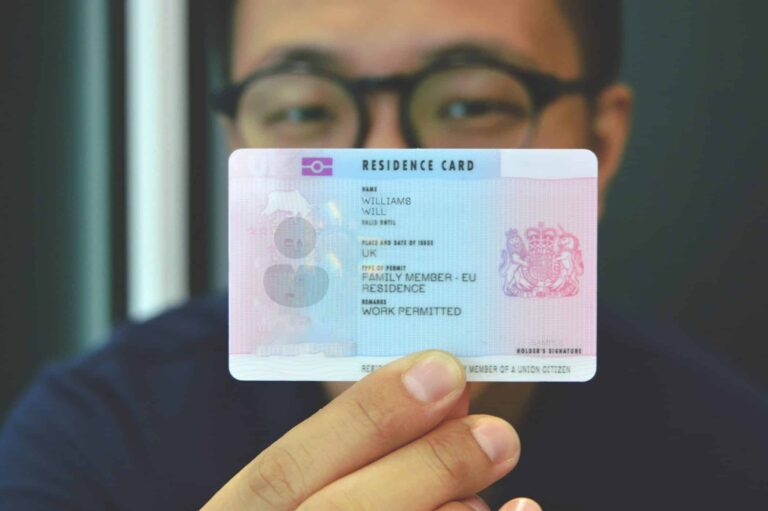Civil Penalty
Have you received a Civil Penalty for Employing Illegal Workers? We can help you decide your next steps. Civil penalties have detrimental effects on businesses and reputations. A single instance of employing an illegal worker, no matter the duration, can lead to a £20,000 fine from the Home Office.
These penalties constitute a substantial income source for the Home Office, putting businesses of all sizes at risk of allegations of unauthorized employment. Beyond the hefty fine, a civil penalty can trigger criminal prosecution against the owner, enforced debt actions, County Court judgments, Sponsor Licence revocation, credit access hurdles, director disqualification, or even business closure. Furthermore, the Home Office publishes an annual roster of businesses issued with civil penalties, potentially resulting in negative press coverage that adversely impacts profitability, credibility, and reputation.
How we can help you for civil penalty?
With a team comprising immigration lawyers and former Home Office professionals, Sharecodeuk holds a proven track record in effectively appealing civil penalties for UK employers. Our expertise aids in reducing the financial, operational, and reputational impact of fines linked to illegal employment.
We provide a fixed-fee assessment during the initial stage of the civil penalty process. This empowers you to assess options and choose the path that minimizes financial repercussions for your business. Our expertise also extends to skillfully identifying reasons for contestation when the Home Office has improperly issued fines. This includes instances where there were unlawful actions during immigration investigations, site inspections (often referred to as ‘raids’), or enforcement measures.
What is a Civil Penalty under the UK immigration law?
A civil penalty, as outlined in the Immigration Act, is imposed upon an employer who was either aware or had substantial grounds to suspect that one of their employees lacked the legal authorization to work in the UK.
All UK employers must, by law, ensure that their workers are eligible to work in the UK and perform their designated roles. This is achieved through pre-employment Right to Work checks and subsequent follow-ups for those with time-limited work permissions, like points-based visa holders. Document check records must be retained for possible inspection
If you employ a migrant worker illegally without having a prior valid right to work check, a Civil Penalty Notice might be issued under section 15(2) of the Immigration, Asylum and Nationality Act 2006. This notice specifies the payable amount and its due date. Hiring an individual without UK work rights or for an unauthorized role could result in a civil penalty of up to £20,000 per illegal worker. The penalty applies if a proper right to work check wasn’t carried out, or if a check was done but the documentation was not genuine, did not belong to the employee, or the work wasn’t permitted.
Besides the substantial financial penalty, breach of obligations could lead to criminal prosecution and other adverse consequences. To avoid immigration violations, proactive compliance is key. However, if you’re facing potential immigration enforcement and a civil penalty for illegal working, understanding the Home Office process is valuable before deciding your next steps.
How is a civil penalty for illegal working calculated?
The Home Office is tasked with establishing the civil penalty amount for illegal working, which is contingent on your individual circumstances. This assessment involves a sliding scale approach, factoring in your employer compliance history with right to work checks. Moreover, you could be eligible for a penalty reduction by demonstrating compliance with any or all of the following three mitigating factors:
- Reporting Suspected Illegal Workers: Providing evidence of reporting suspected illegal workers to the Home Office.
- Active Cooperation: Demonstrating proof of active cooperation with the Home Office throughout the investigation.
- Effective Document Checking Practices: Presenting evidence of effective practices for checking employees’ right to work.
In the context of a 3-year timeframe, the initial penalty for a first breach is £15,000 per illegal worker, before considering reductions. For a second or subsequent breach, the baseline is £20,000. The presence of either of the first two mitigating factors can lead to a £5,000 reduction in the potential penalty. If you can demonstrate that you’ve reported suspicions, cooperated with the Home Office, and possess effective practices,
- Provided there hasn’t been a previous penalty within the last 3 years
- The civil penalty can be reduced to a Warning Notice
What do I do if I have received a Civil Penalty?
In case you’re found employing an illegal worker and receive a Referral Notice, your case will be assessed under the civil penalty scheme within the context of any breach of the IANA.
The Referral Notice outlines the case considerations, possible outcomes, and breach dates. Consult “The employer’s guide to the administration of the civil penalty scheme” issued by the Home Office for guidance on how the scheme operates, including document types and relevant deadlines for each stage.
Upon receiving a civil penalty, you have three choices: object to the fine, request a payment plan, or pay in full. Your response is due within 28 days and this deadline is unchangeable. Obtaining prompt specialized legal counsel is vital to comprehend your options and select the best path forward. Our UK immigration solicitors have substantial experience advising on challenging fines or making payment decisions based on case specifics.
Employers must also note that if they appeal a civil penalty, the Home Office retains the right to impose an increased fine should the appeal be unsuccessful.
Stage 1 – Civil Penalty
Following an anonymous tip-off about potential illegal workers on your premises, the Home Office may perform an unannounced site visit. This information could come from sources such as disgruntled employees or dissatisfied customers, even without definitive proof of illegal activity. During the visit, the Home Office will gather evidence and subsequently refer the case to the civil penalty compliance team.
Upon receiving the referral and reviewing the details, the civil penalty compliance team will send an information request seeking the following information:
- Confirmation of your status as the employer of the identified workers. If not applicable, details of the employing business will be requested.
- Verification of whether right to work document checks were conducted and their respective dates.
- Information about any reports made regarding suspected illegal workers.
- Confirmation of employment of the identified workers, along with relevant dates.
You will have a 10-day window to provide the completed information request response form along with supporting documents.
The response you provide holds significant influence over the issued civil penalty’s severity. Engaging expert legal representation to craft a comprehensive response is pivotal at this juncture. The civil penalty compliance team anticipates you to complete the necessary information in the response form and does not allow space for arguing against the allegations. To strengthen your case, we recommend submitting representations that offer a thorough defense against each allegation alongside the response form.
Stage 2 – Civil Penalty
Upon receiving the response to the information request, the civil penalty compliance team evaluates four criteria to determine the issued civil penalty’s magnitude. The compliance team might choose to provide a formal warning notice (with no penalty) or a reduced civil penalty if they find successful mitigation due to the response’s information.
Civil penalties are issued by the compliance team, offering a 28-day window for full payment, setting up an installment plan, or objecting to the penalty. If you haven’t previously employed illegal workers in the last three years, you could receive the fast payment option with your civil penalty notice. This grants a 30% reduction if paid fully within 21 days of the notice’s issuance.
As a business owner, you’ll need to weigh the costs of engaging legal representation to contest the penalty against paying it. This decision hinges on the strength of objections against the allegations, potentially leading to penalty reduction.
Challenging a Civil Penalty
Employers facing a civil penalty for illegal employment may be able to pursue an appeal. This can be to either lower the level of the original penalty, or to remove the penalty altogether. The level of the original penalty can however also be increased at the appeal stage.
The appeals process is complex and time sensitive. It takes careful and experienced assessment of the full circumstances, from the nature of the alleged breaches, the evidence being relied on and the conduct of Home Office enforcement officials during the investigation.
The Home Office guidance sets out how and when you may exercise the right to object to the imposition of a civil penalty for illegal working and also appeal to a court of law. You can object and appeal on the following grounds:
- you are not liable to pay the civil penalty, for example, because you are not actually the employer of the illegal worker(s) in question
- you have a statutory excuse, where you conducted a prescribed right to work check, or
- the amount of the penalty is too high, where this has been miscalculated or you can show that you have met certain mitigating criteria which has not been taken into account.
An objection must be raised within 28 days by filing an Objection Form and any additional evidence. This can result in a Warning Notice, the upholding of the civil penalty, a penalty reduction, an increased penalty or the cancellation of the penalty. In cases where an objection is denied, you can appeal to the County Court within 28 days.
If the Home Office visits your business premises and you are able to establish a statutory excuse in respect of the illegal workers identified, no further action will be taken. You will not be issued with a Referral Notice, but will instead be served with a No Action Notice. A No Action Notice will not have an adverse impact in the event of any subsequent penalty. Equally, if a Civil Penalty Notice is cancelled following an objection or appeal, and not replaced by a Warning Notice, this will not be taken into account for any future breaches.
How to appeal a Civil Penalty
If you receive a civil penalty for illegal work, you have 28 days to pay the fine or submit an appeal. The appeal can either be to lower the level of the original penalty, or to remove the penalty altogether.
Challenges have to be made on specific grounds, within specific timeframes, and be supported by relevant documentary evidence. The approach you take should be dependent on your organization’s circumstances and the level of the civil penalty notice you have received.
One important consideration is that the Home Office has the power to increase the level of the original penalty at the appeal stage, so you should generally only proceed with an appeal where you are confident in the merit of your challenge and following professional advice.
As an outline, the appeals process is generally made up of two key stages: first, taking professional advice on the merits of making an appeal, or whether, in the circumstances (such as the nature of the breach), it would be advisable to pay the fine. Our business immigration specialists are experienced in challenging civil penalty fines, and will assess your case before making a recommendation. If you decide to appeal, we will work with you to compile the objections and submit a response to the notice on your behalf within the 28 day period.
Grounds for objection fall within the following:
- The penalty relates to worker(s) who are not with your employment and you are therefore not liable for the penalty, or
- You are relying on a statutory excuse as you can evidence that you took appropriate actions to check for illegal workers and as such had no reason to suspect illegal working, or
- The level of fine is unreasonable given your conduct through the investigation and your overall immigration compliance methods, as such the fine should be lowered.
If the initial appeal is not successful, you can register an appeal with the County Court to have the penalty adjusted or repealed. This will involve a hearing where the evidence will be considered.
How and when must a civil penalty for illegal working be paid?
Your Civil Penalty Notice will detail the required payment amount and the deadline for payment. Making prompt payment may lead to a discounted rate. Conversely, if payment is challenging, you might have the option to pay in installments.
It’s crucial to note that if you don’t settle the civil penalty in full, object, or appeal by the stipulated due date, the penalty could be lodged with the court, prompting potential immediate enforcement. Similarly, non-payment of agreed installments on specified dates could result in debt recovery enforcement measures.
If you object to the penalty before the deadline set out in your Civil Penalty Notice, you will still be eligible for the fast payment option. If, following your objection, you are required to pay a penalty, you will be issued with a fresh notice setting out a new date to pay your penalty at the lower amount. However, if you have previously been found to have employed illegal workers in the last 3 years, you will not be eligible to make a reduced payment.
Payment by instalments
If you cannot pay the civil penalty in a single lump sum, the Home Office may agree for you to pay your penalty by instalments instead, usually up to 24 months, although exceptionally as much as 36 months. However, in these circumstances, the penalty amount will not be reduced, where a fast payment option cannot be paid by instalments.
In order for any application to be considered, you must submit details of your ability to make payments over the instalment plan period, together with reasons as to why you cannot pay the full penalty within 28 days of the Civil Penalty Notice. Your request to pay by instalments will not affect the time limits for bringing an objection or an appeal.
Wider implications of civil penalties
Employing illegal workers can have very serious consequences for both you and your business, including but not limited to sizeable immigration civil penalties. Your business and employer-brand will be at serious risk from reputational damage, where the government publishes a quarterly report, listing the penalties given to employers in different geographical areas across the country. The report sets out the name and address of each business, together with the final value of each civil penalty for illegal working.
The imposition of a civil penalty for illegal working can also lead to any sponsor licence that you may have being downgraded or revoked. It could also impact your ability to obtain a sponsor licence in the future and result in disqualification for any company directors. Equally, if enforcement action is taken in the county court for non-payment of a penalty, this could have an adverse impact on your ability to act as a director.
Most importantly, however, you may be liable to criminal prosecution if you knew, or had reasonable cause to believe, that an employee did not have permission to undertake work in the UK or to do the job on offer. The offence of knowingly employing an illegal migrant worker is punishable by up to 5 years’ imprisonment, an unlimited fine, or even both.
If you have found yourself facing a possible civil penalty for illegal working, you should immediately seek expert advice from an immigration specialist. Your legal advisor can also help you to put in place compliant working practices when it comes to right to work checks, in this way helping to reduce the risk of another civil penalty in the future.
How to avoid civil penalties
Every employer bears the duty of preventing unlawful employment by performing designated right-to-work assessments on all potential employees before their employment begins. Additionally, they must conduct follow-up assessments on any current employees possessing a time-limited right to work in the UK. By executing these right-to-work evaluations accurately, the likelihood of hiring an unauthorized worker is greatly reduced. Simultaneously, demonstrating the accurate execution of such assessments establishes a legal defense against civil liabilities in case of any later discovery of unlawful employment.
There exist diverse methods to carry out a right-to-work check, with the approach often influenced by the nationality of the employee under consideration. To illustrate, for individuals holding valid passports from the UK and Ireland, a digital identity assessment can be performed through an Identity Service Provider (IDSP) utilizing Identity Document Validation Technology (IDVT). Conversely, for individuals from the European Economic Area (EEA), Switzerland, and other migrant workers, accessing and reviewing their right-to-work records is typically accomplished by utilizing an online Right to Work Checking Service, which requires the acquisition of a share code from the employee.
Should an IDVT or online verification not be viable for the employee in question—potentially due to their immigration status not falling under the purview of these specific right-to-work checks—a hands-on manual document assessment will be necessary. When faced with scenarios where the employee is unable to present their documents or online immigration status, the recourse is to request the Home Office to verify the immigration status of the potential or existing employee through the Employer Checking Service. This situation may arise if the employee has an ongoing application, review, or appeal with the Home Office. If the individual possesses a continuing right to work in the UK, you will receive a Positive Verification Notice as a result of this process.
It is of utmost importance for every employer, particularly those who have previously faced penalties for unlawful employment, to adhere to the specified protocols outlined in “The code of practice on preventing illegal working.” This code undergoes regular updates, with the most recent iteration dated as of April 6, 2022. This statutory code offers comprehensive instructions on how to establish and maintain a legal defense against civil penalties, providing detailed guidance for compliance.
Civil penalty FAQs
What constitutes a civil penalty under UK immigration law?
A civil penalty refers to fines imposed by the Home Office when an employer is discovered to be engaging in unlawful employment practices.
What are the consequences of employing individuals illegally in the UK?
In the event that you are found to have intentionally hired someone without the necessary legal authorization, you could potentially face an unlimited fine and a prison term of up to 5 years.
What is the potential prison term for hiring unauthorized workers?
If you are proven to have knowingly employed individuals without the required legal permissions, you could receive a prison sentence of up to 5 years.





